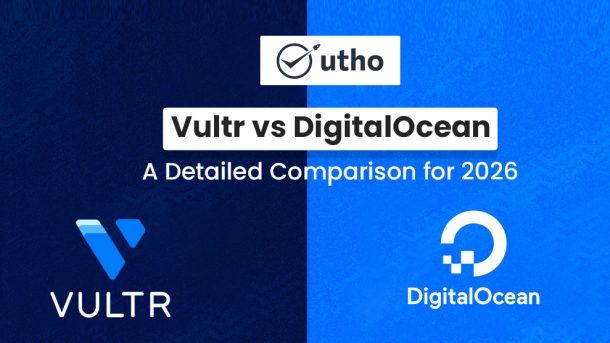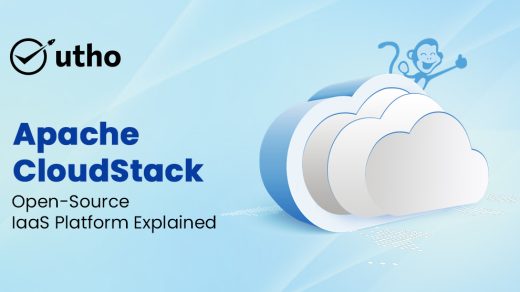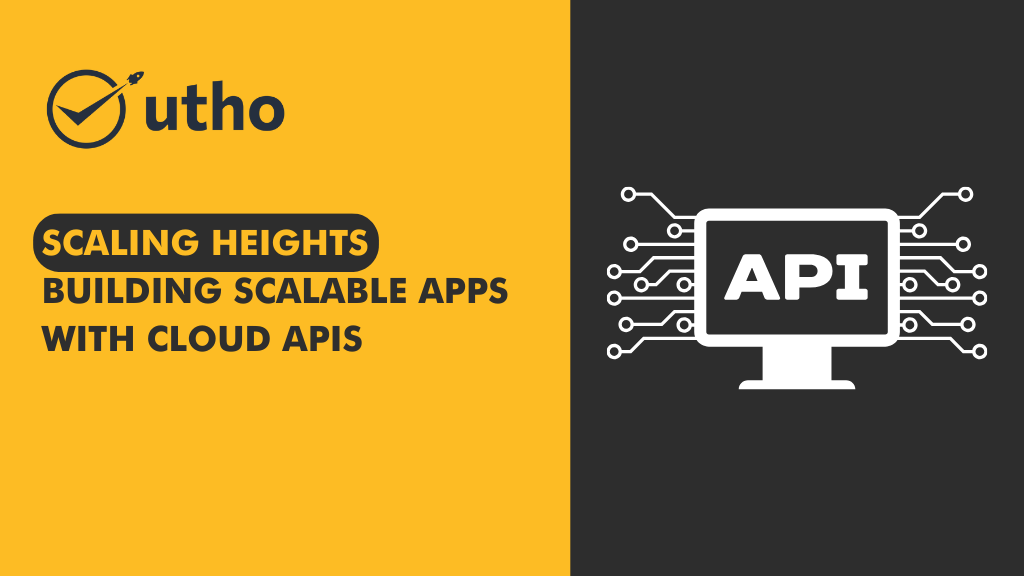Vultr vs DigitalOcean is a key cloud hosting comparison for businesses and developers. Both platforms have found their niche in the developer-focused hosting market. They offer features and services for startups, SMBs, and enterprises. Vultr and DigitalOcean both value simplicity and performance. But, they differ in their pricing, scalability, and advanced configurations. This analysis details the strengths and challenges of each platform. It helps users make informed decisions based on their needs.
Overview of Vultr
Vultr is a versatile cloud host. It has many servers and a strong global presence. Its appeal is its ability to handle a wide range of workloads. These range from lightweight apps to resource-intensive enterprise solutions. Vultr offers more than basic virtual machines. It has Bare Metal servers and manages Kubernetes clusters. So, it is a flexible option for users with varied hosting needs.
Also read: Top 10 Vultr Alternatives in 2026: A Detailed Comparison
Key Features
- Bare Metal Servers: For performance-critical apps, Vultr's Bare Metal servers provide dedicated resources. With no virtualisation overhead, they ensure maximum speed and reliability. These are ideal for gaming servers, high-traffic websites, and data-intensive workloads.
- Managed Kubernetes: Vultr's managed Kubernetes services simplify container orchestration. They enable easy deployment, scaling, and management of containerised apps.
- Global Data Centres: Vultr has 30+ data centres worldwide. This ensures low latency and fast performance for global users.
- High-Performance SSD Storage: Vultr's infrastructure uses SSDs. They provide fast read/write speeds and reliable performance for demanding workloads.
Strengths of Vultr
- Flexibility: Vultr offers many compute options. They include standard VMs, bare metal servers, and managed Kubernetes. This makes it a versatile platform for projects of all sizes and complexities.
- Global Presence: Its many data centres let firms deploy apps closer to users. This reduces latency and improves the user experience.
- Performance: Vultr prioritises speed and uptime. It's a great choice for apps needing reliable performance. This includes e-commerce sites and video streaming services.
Challenges with Vultr
- Cost: Vultr has low prices for entry-level plans. But, advanced setups, especially Bare Metal servers, can get expensive. This may challenge businesses with tight budgets or growing needs.
- Limited Documentation: Some users say Vultr's docs aren't as good as DigitalOcean's. This can make troubleshooting and optimization more challenging for less experienced users.
Overview of DigitalOcean
DigitalOcean is a leader in developer-friendly cloud hosting. It focuses on simplicity, affordability, and accessibility. It is popular among startups and small teams. They like its easy interface and simple pricing. DigitalOcean aims to simplify cloud hosting. It wants to provide a seamless experience for developers of all skill levels.
Read also: Top 10 DigitalOcean Alternatives in 2026
Key Features
- Droplets (VMs): DigitalOcean's VMs, called Droplets, are flexible. You can customize them for many uses. They can host simple websites or run complex apps.
- Managed Databases: Developers can easily deploy PostgreSQL, MySQL, and Redis. DigitalOcean's fully managed database solutions make it possible.
- Kubernetes Clusters: DigitalOcean's managed Kubernetes service lets teams deploy and manage containerised apps. They don't need to worry about the underlying infrastructure.
- Developer Resources: DigitalOcean has many tutorials and guides. Its community content is also great. This makes it a top choice for users who value learning and support.
Strengths of DigitalOcean
- Ease of Use: DigitalOcean's clean, intuitive dashboard and tools are user-friendly. They make it accessible to developers and non-tech users alike. It is often praised as the best platform for beginners.
- Transparent Pricing: DigitalOcean's simple pricing has no hidden costs. This helps startups and SMBs budget better.
- Community Support: DigitalOcean's knowledge base and active community provide strong support. Users can quickly solve problems.
Challenges with DigitalOcean
- Limited Advanced Features: DigitalOcean, unlike Vultr, has no Bare Metal servers. It also lacks advanced configurations for enterprise workloads. This limits its appeal for businesses with highly specialised infrastructure needs.
- Scaling Limitations: DigitalOcean is great for small projects and startups. But it may not meet the needs of large, resource-intensive applications.
Vultr vs DigitalOcean: A Detailed Comparison
The right cloud hosting provider is crucial. It affects your apps' efficiency, scalability, and cost. This detailed comparison of Vultr vs DigitalOcean covers five areas: pricing, performance, ease of use, support, and scalability. It will help you choose the best platform for your needs.
1. Pricing
- DigitalOcean: It is known for its predictable pricing model. It offers fixed costs for its Droplets (virtual machines) and managed databases. This lets startups and small projects plan their budgets. They can do so without worrying about unexpected charges. For instance, developers can easily calculate monthly costs based on their chosen configurations. This makes it an attractive option for those with limited funds.
- Vultr: Its entry-level virtual machines have competitive, low prices. This makes them accessible for small projects. However, its high-performance options, like Bare Metal servers, are pricier. These configurations suit resource-heavy apps like big data processing, gaming, and video streaming. But costs can rise quickly as usage grows.
- Verdict: DigitalOcean is the best for affordable, budget options. It's ideal for startups and small businesses. On the other hand, Vultr caters to users who want high performance. They will pay a premium for advanced features, like Bare Metal infrastructure.
2. Performance
- DigitalOcean: DigitalOcean provides reliable and consistent performance for moderate workloads. Its SSD-backed Droplets and scalable infrastructure ensure that applications run smoothly. However, the platform is better for small to medium apps. It may not be as good for resource-heavy tasks. These include machine learning and enterprise analytics.
- Vultr: Vultr excels in high-performance settings. It offers advanced compute instances and Bare Metal servers with dedicated resources. These settings ensure low latency and high throughput. So, Vultr is a top choice for demanding apps. Also, its global data centres improve performance. They allow users to deploy apps closer to their audience.
- Verdict: For resource-intensive projects requiring exceptional performance, Vultr is the superior choice. However, for moderate workloads, DigitalOcean is the better option. It is consistent and cost-effective.
3. Ease of Use
- DigitalOcean: DigitalOcean has built its reputation on being beginner-friendly. Its dashboard is easy to use. It simplifies tasks like deploying Droplets, configuring databases, and managing Kubernetes clusters. Also, the platform's tutorials and guides provide step-by-step instructions. They make it accessible for developers with limited technical skills.
- Vultr: Vultr's dashboard is user-friendly. But its many features can overwhelm beginners. They include Bare Metal servers and advanced networks. Experienced users may like the flexibility and options. But newcomers might find the platform harder to navigate.
- Verdict: DigitalOcean is the simplest, most accessible cloud host. So, it's a favourite among new developers. Vultr is better suited for experienced users seeking diverse options and advanced features.
4. Support and Documentation
- DigitalOcean: It has a strong support system. It includes detailed guides, a community forum, and responsive customer service. Its tutorials are well documented. They cover many topics. Users can easily troubleshoot issues or learn new skills. The active community helps users quickly find solutions to common problems.
- Vultr has basic customer support. Its docs and resources are not as extensive as DigitalOcean's. This can hinder users' ability to fix issues. It's especially true for complex setups or advanced use cases.
- Verdict: DigitalOcean's community support and docs give it an edge over Vultr. This is especially true for developers who self-learn or need quick access to resources.
5. Scalability
- DigitalOcean: It is ideal for startups and SMBs. It suits smaller-scale scaling with predictable growth. Its infrastructure might struggle with enterprise-level workloads. This is especially true for organisations needing custom setups or large-scale deployments.
- Vultr: Vultr offers better scalability. It has advanced server types, like Bare Metal, and a global network of data centres. These cater to larger applications. Vultr's flexible scaling can help businesses with high growth plans or variable workloads.
- Verdict: For large-scale deployments, Vultr is the better choice. DigitalOcean is great for scaling small projects. But it may not meet enterprise-level needs.
Who should choose Vultr?
Vultr is best suited for users who:
- Require high-performance servers or bare-metal infrastructure for resource-intensive applications.
- We operate in international markets. We need a global data centre network for low latency.
- They are comfortable with a steeper learning curve. They need advanced features not usually found on simpler platforms.
Who should choose DigitalOcean?
DigitalOcean is ideal for users who:
- Prefer simplicity and transparency in their cloud hosting experience.
- Are startups, SMBs, or independent developers looking for affordable and reliable hosting?
- Value an intuitive interface paired with robust, community-driven support for troubleshooting and learning.
Utho: A Game-Changing Alternative for Vultr and DigitalOcean Users
For businesses debating Vultr vs DigitalOcean, Utho is a top choice. It blends DigitalOcean's simplicity with Vultr's high performance, low cost. Utho caters to many businesses. It delivers affordable, user-friendly, innovative cloud solutions with enterprise-level features.
Why Utho is great for DigitalOcean users.
- Ease of Use: Utho's simple, intuitive platform is as easy to use as DigitalOcean. It also provides more flexibility. Users can adapt to complex, growing workloads. With Utho, startups and SMBs can smoothly upgrade their infrastructure. They can do this without a steep learning curve.
- Cost efficiency Utho saves up to 60% compared to major providers. It is a great option for budget-conscious businesses. Startups, indie devs, and SMBs can use these savings to fund other growth areas.
- Scalable Solutions Utho is designed to grow with your business. It offers advanced Kubernetes support for containerised apps. It has high-performance compute instances to meet scaling needs. Utho is perfect for businesses that want to grow without changing their cloud setup.
Why Utho is great for Vultr users
- Utho matches Vultr's high-performance capabilities, including powerful compute instances. But it does so without the premium price of Vultr's Bare Metal servers. This makes Utho a great choice for budget-conscious, performance-focused businesses.
- Exceptional Support Vultr has limited documentation and support. This is a common challenge. Utho provides 24/7 support. Users can always get expert help with issues.
- Localized Focus Utho knows emerging markets have unique needs. It offers tailored solutions and regional availability to support businesses there. This local focus ensures low latency and compliance with regulations. It gives businesses a competitive edge in their markets.
Why Utho Bridges the Gap
Utho offers the best of both worlds. It combines DigitalOcean's simplicity and low cost with Vultr's scalability and high performance. It offers a cloud hosting experience that is intuitive, cheap, and powerful. It's also scalable. So, it's a great choice for businesses of all sizes.
Utho is the perfect solution for users evaluating Vultr or DigitalOcean alternatives, offering:
- Simplicity for beginners and non-technical teams.
- Affordability for start-ups and SMEs with tight budgets.
- Performance and scalability for enterprises with demanding workloads.
With Utho, you do not have to compromise. It is cloud hosting that meets your needs, supports your growth, and fits your budget.
The Vultr vs DigitalOcean debate shows the pros and cons of two top cloud hosting platforms. DigitalOcean is a top choice for startups and small businesses. Its simplicity, low cost, and community support drive this. Vultr, on the other hand, excels at its global, high-performance infrastructure. Its advanced server options are also top-notch. It caters to businesses with resource-intensive needs.
However, for users seeking a blend of both platforms, Utho is a great solution. Utho has an intuitive interface, a low cost, and a scalable system. It bridges the gap between affordability and performance. Utho's 24/7 support, advanced Kubernetes, and local focus benefit businesses. This makes it a great choice for emerging markets and global ops.
Utho delivers a cloud hosting experience tailored to your needs. It excels in simplicity, cost, and enterprise-grade performance. As the cloud landscape evolves in 2026, Utho stands out. It is a great option for businesses that want to optimize their hosting strategy without compromise.




